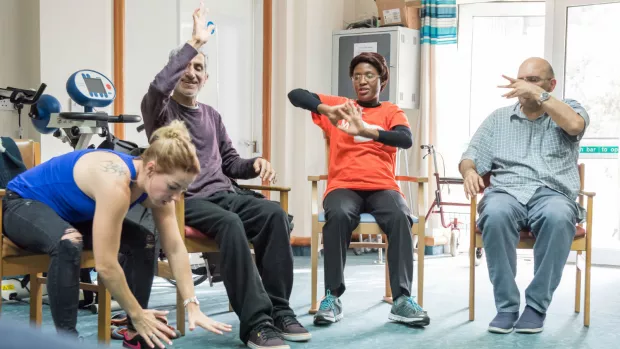Identifying whether exercise-related symptoms can predict MS progression

- Lead researcher:
- Dr Don Mahad
- Based at:
- University of Edinburgh
- MS Society funding:
- £39,918
- Status:
- Active
About the project
Exercise offers a number of benefits to people with MS, but often brings on temporary symptoms like foot drop (a difficulty lifting up the front of your foot). This can limit your ability to walk without stopping and resting. People with MS often report this kind of exercise-related symptom early on in the condition, and for many it gets worse over time. This happens even when they aren’t experiencing relapses.
The researchers will measure how exercise-related symptoms change over time in people with MS who run and walk regularly but aren’t currently experiencing relapses. They'll compare these changes to other measures of how severe someone’s MS is – like the Extended Disability Status Scale.
How will it help people with MS?
At the moment, we don't have a test to confidently identify people with MS who are developing progressive MS silently (without obvious signs like new MRI lesions). In the long term, these researchers want to find out whether the change in exercise-related symptoms over time can help them predict who has MS that is silently progressing.
The difference you can make
MS is unpredictable and can be different for everyone. Your support will help to fund research to identify people who are progressing silently, and make sure people with MS are receiving the right care and treatment.




